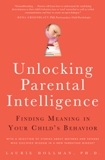Sometimes parents think of kids school work as their job. This is true. But then they reason, they get paid for their jobs as adults, so maybe kids should get paid for their jobs, too. This reasoning may be confused by the parents loving wishes for their children to learn well, get good grades, eventually attend a good college, and succeed in life. However, it side steps the value of learning for its own sake and that learning not only occurs outside of school work but also that it is life-long.
However, in my experience, payments for grades are motivating only in the short run before the child loses steam. Payment doesn't instill responsibility for learning or actually help a child gain knowledge. What are other ways to reward your child that build intrinsic values about learning? Daniel Coyle, author of the best-selling book, The Talent Code, points out that praising effort not accomplishment is much more likely to lead to successful outcomes. Not just any effort, but persistent, intensive effort that comes with focusing on overcoming errors by pushing oneself to the edge of one's knowledge and skills.
In Amanda Ripley's best seller, The Smartest Kids in the World, she studied smart kids cross-culturally. She found that kids who learned best were fluent in problem solving and the ability to communicate -- they knew how to think. That's a far cry from paying kids for grades. The smart kids intrinsically developed their own aspirations that were not dependent on material goods from their parents. Parents who want smart kids need to praise higher level thinking. What is that? It's thinking about thinking, understanding the process of learning, a far cry from memorization and rewarding stellar grades.
Furthermore, parents who reward effort, not grades, in my experience, seem to trust their kids more and treat them with more respect. This, in turn, leads to parents and kids enjoying learning as part of their family's values. Learning is like a great hobby in these families. Discovery, curiosity, excitement about what is novel, thinking 'outside the box' is enjoyed for its own sake and reaps rewards that can't be measured by tests or rewards.
Susan Cain in her best selling book, Quiet, also talks about how thinking introverts often are far more talented and accomplished than society that focuses on the extrovert ideal would expect. She says that the belief in cooperative or collaborative learning popular in the eighties in corporations and in schools did not turn out the best thinkers and inventors. After meeting in groups, when the worker or student works on their own, that's when the remarkable ideas were created. Should We Reward Interpersonal Skills?
If we mistakenly follow the idea that extroverts are the best performers, then parents and teachers might start rewarding kids who participate in school the most and have the most friends. Many kids who aren't high participants have vast accomplishments. Can you imagine paying your child or buying her designer clothes to be in the most 'popular' crowd? Wouldn't it be much better to let your child develop his or her own friends in their own way having a few close and loyal friends they can depend on?
Is Monetary Success the Most Satisfying Outcome of Learning?
We all want ourselves and our kids to have a solid sense of financial security but it's clearly an individual preference for the style of life one wants when it comes to material goods. To return to the question of paying for grades as a reward, aren't we suggesting that monetary gain, not the pleasure of learning is the highest reward? What do you want to teach your children?
 Laurie Hollman, Ph.D. is a psychoanalyst with an upcoming book, Unlocking Parental Intelligence: Finding Meaning in Your Child's Behavior, to be released Oct. 13. Pre-sale discounts are available from Amazon.
Laurie Hollman, Ph.D. is a psychoanalyst with an upcoming book, Unlocking Parental Intelligence: Finding Meaning in Your Child's Behavior, to be released Oct. 13. Pre-sale discounts are available from Amazon.